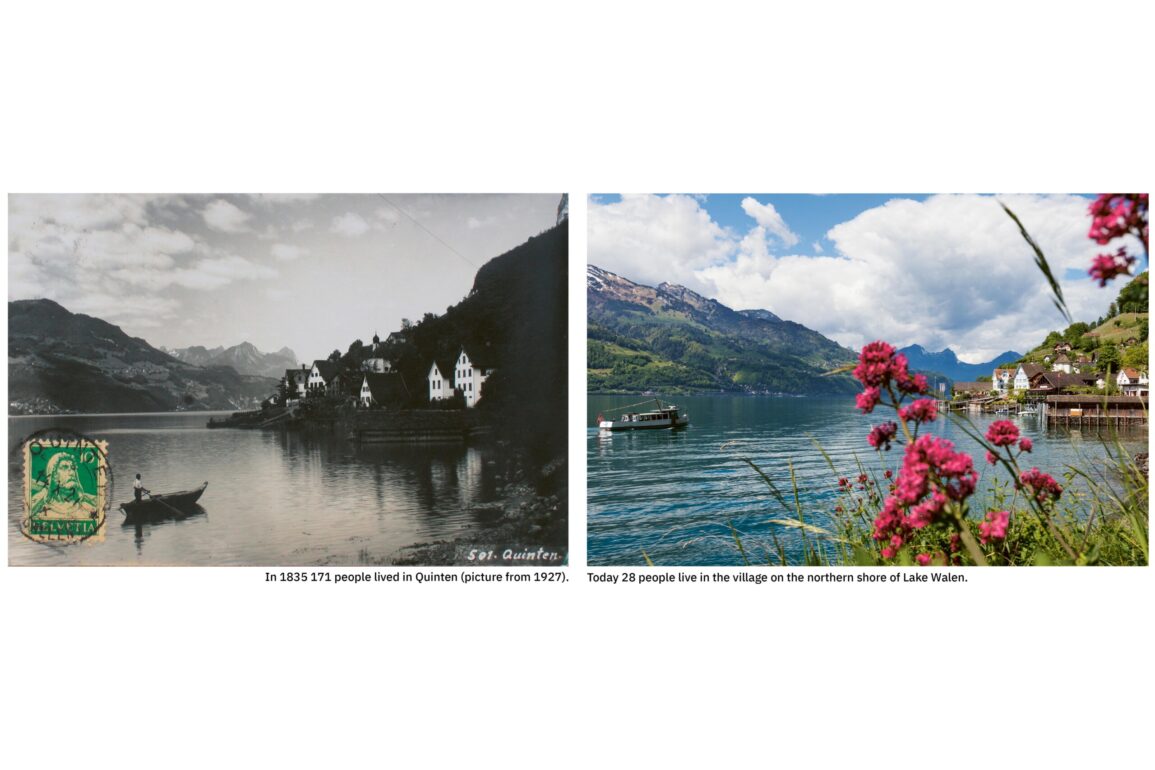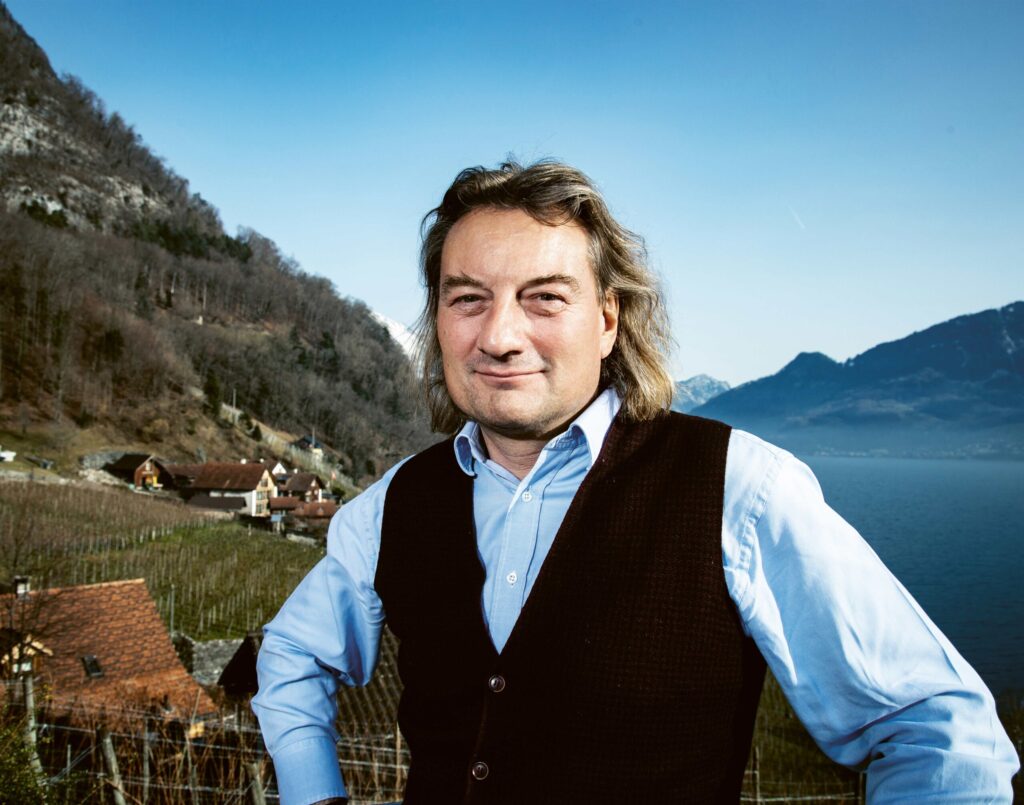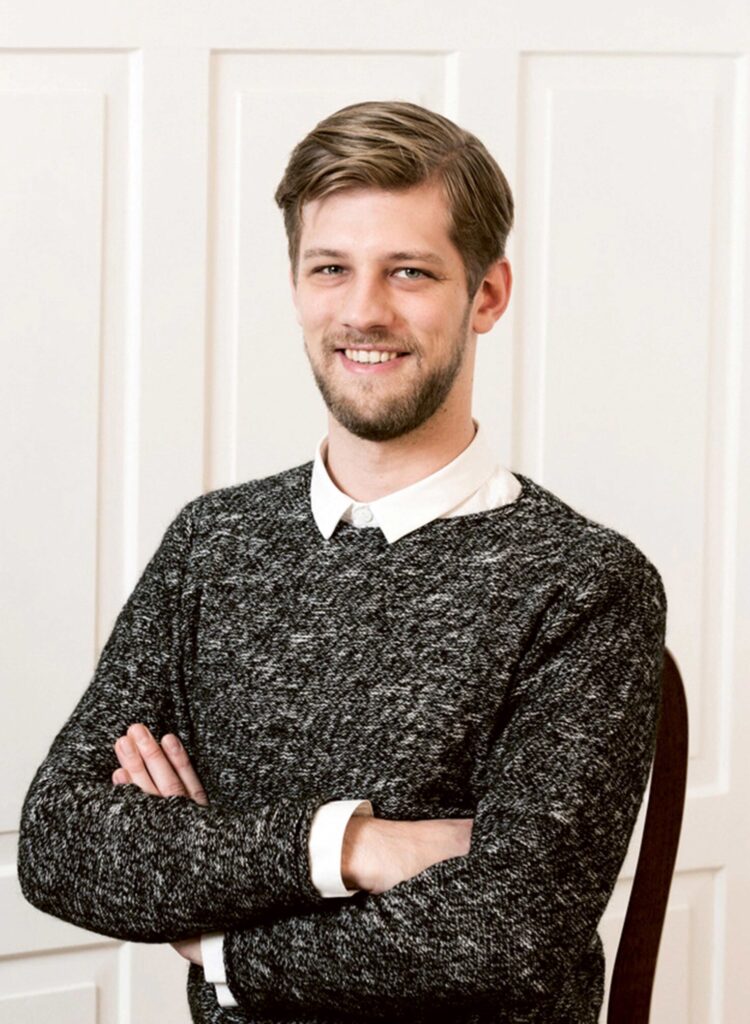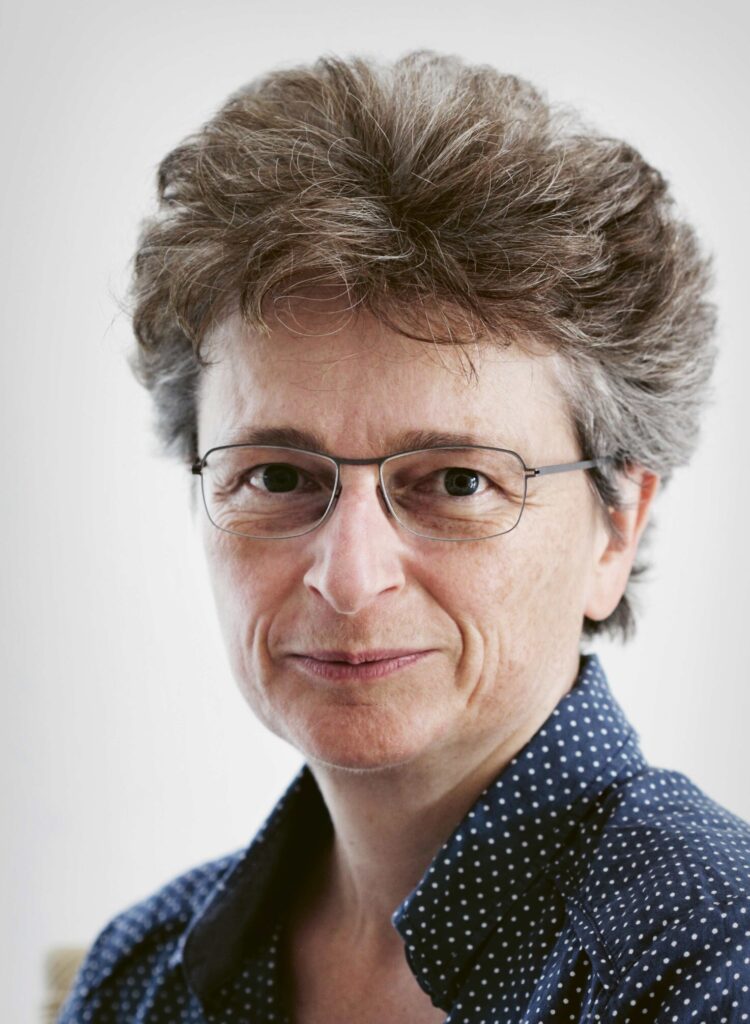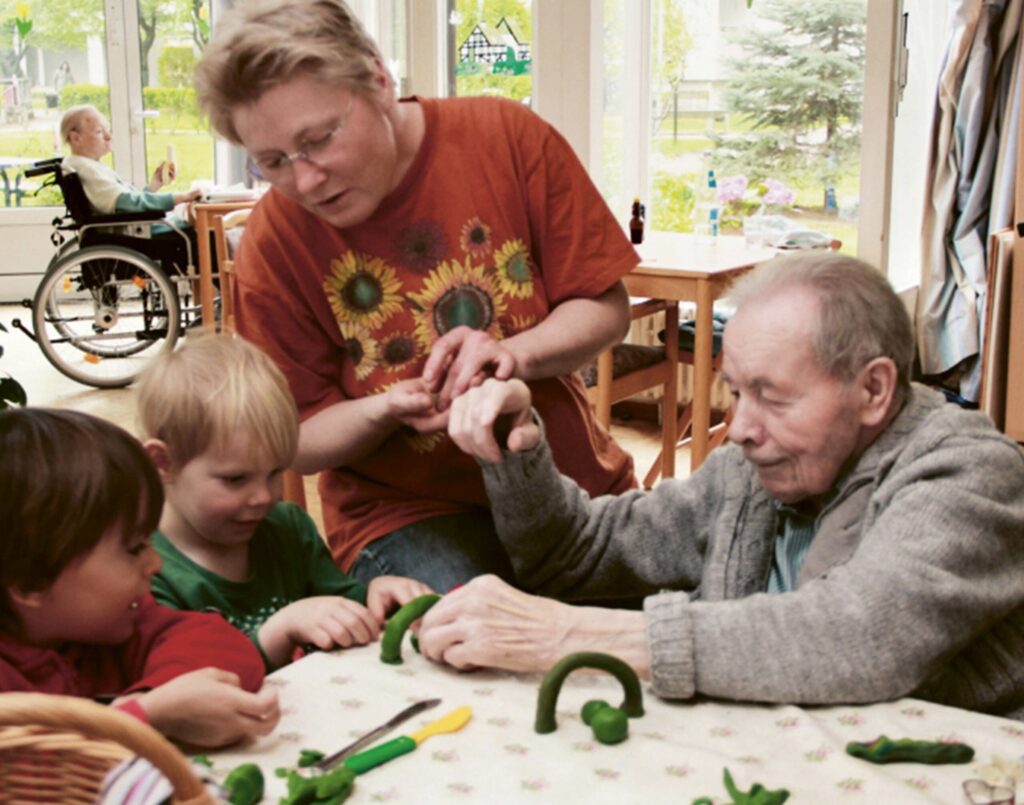Both across society as a whole and within smaller communities, the interplay between the generations is becoming increasingly important. The increase in shared lifespan due to demographic change requires mutual understanding of the needs of other generations. The Intergeneration platform increases the visibility of intergenerational projects, and the Quinten lebt («Quinten lives») foundation is dedicated to fostering village community life.
It’s very quiet. There aren’t many passengers on board as the ferry service crosses Lake Walen and docks in the off season. The coronavirus crisis has only solidified this state of quietude. Tourist transport has been suspended. Quinten. The village is located on the south bank of Lake Walen. Its Mediterranean climate attracts around 200,000 tourists each summer. But outside of peak season, its 38 inhabitants mostly keep to themselves. Quinten is only accessible by boat. In 1835, the idyllic village was home to 171 inhabitants. But like many villages in the countryside, people have left over the years. They are lacking a younger generation. But there is still life in the village. It is fighting for its survival. The first step was founding the «Quinten lebt» interest group. The second was setting up the foundation of the same name. To reinvigorate village life, they need young people to move there.
Recognising mutual needs
The challenges facing the village of Quinten are the same ones that face society as a whole. Our society relies on the generations coming together. The issues that affect the older generation can only be resolved in collaboration with the younger generation. «When we started grappling more closely with intergenerational relations, it became clear that demographic change is real, and it is only going to become more pronounced,» says Monika Blau, programme manager at Intergeneration. The idea of an online platform came in 2010, the 200th anniversary of the Swiss Society for the Common Good (SSCG). The society runs the programme, which has long since moved beyond the digital realm. The huge changes society faces will be a challenge. Relationships will shift. Young people will be in a minority compared with the older generation. «That doesn’t mean we’ll stop listening to what young people have to say,» says Ruedi Schneider, deputy programme manager at Intergeneration. «It’s important to understand and acknowledge the needs and interests of other age groups. And that works both ways.» That’s the aim of the funding programme. It wants to strengthen the relationship between different generations by increasing the visibility of intergenerational projects. It publicises projects that bring the generations together and connects those running the programmes.
Calling all young families
The relationship between the generations is important. This applies within families, between grandparents and grandchildren. It applies in wider society, and also in villages like Quinten. «The idea for the Quinten lebt foundation came from my neighbour,» says Joel Schmid, chair of the board of trustees. His financial support also formed the basis of the foundation. But the foundation could not handle all of its planned projects alone. Schmid emphasises that the projects in Quinten are supported by the Hans und Hilde Schütze foundation in Zurich. «The foundation recognised that its money would go directly towards a sustainable project with us. It has been a successful collaboration – together, two foundations have made something happen,» says Schmid. The Quinten project attracted some media attention, too – in particular the Dörfli 1370 project. The foundation converted an unfinished house into two flats and a B&B with a bistro. The bistro will remain open year-round. For the village. The media was particularly interested in the foundation’s offer of money to a young family who would be willing to move to Quinten.
More time
Urban areas are becoming more attractive for all generations. People are moving to the city. «Age segregation is the same in urban areas as it is in the countryside: there is a clear division between the daily lives of younger and older people,» says Monika Blau. «Children and teenagers, in particular, have barely any contact with older people in their day-to-day lives.» At the same time, exchange between the generations is becoming increasingly important. We are living longer, which means the shared lifespans between different generations are growing continually. The generations need to work together. «We need projects that bring something positive to all the generations involved, not just ones where one generation does something for another, where the benefit is one-sided or where one age group is exploited,» says Ruedi Schneider. The Intergeneration platform hosts 340 projects, all of which are based on collaborations that actively involve different generations. In Quinten, too, the interest group and the foundation are working in many different areas to improve the quality of life for everyone – from a daily postal service and faster internet connection to transport links with Zurich. The most important thing is to accept the needs of different generations. This is particularly important when the available resources are limited. «There are discussions and conflicts about how to distribute the funding,» says Monika Blau. She gives the example of educational funding for children and young people versus funding for care and support services for the older generation. She points out that, «The older generation will benefit from young people who are well educated now. It will be the younger generation that ensures appropriate old-age care and support in future, and that will be easier with a good education.»
Life, death and traditional crafts
In Quinten, traditional skills have been turned into a new source of income. The Raupenhotel («Caterpillar Hotel») draws on the tradition of silkworm farming, which was once a thriving trade in Quinten. And one very special project run by the Quinten lebt foundation is currently engaging the older generation in particular – but will impact all the village’s residents. The village wants to build its own cemetery. «It meets a local need: the people of Quinten want to be buried here,» says Joel Schmid. «It is also important for the grieving process.» It’s not a need that might spontaneously occur to you on a walk through the village. «But when it was raised as an agenda item at the meetings, a very particular atmosphere always descended over the room,» says Schmid.

